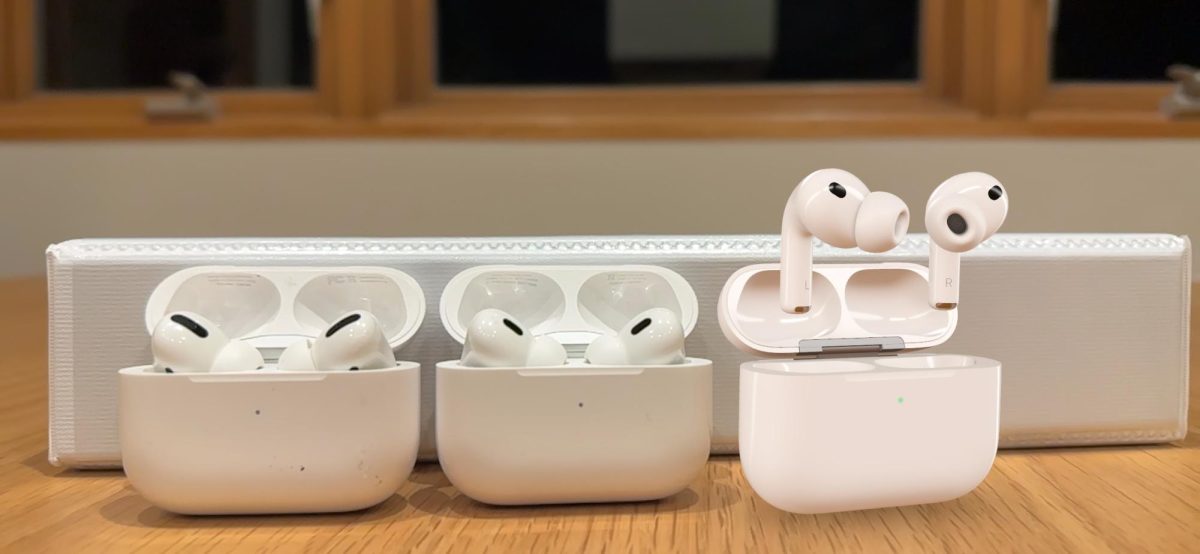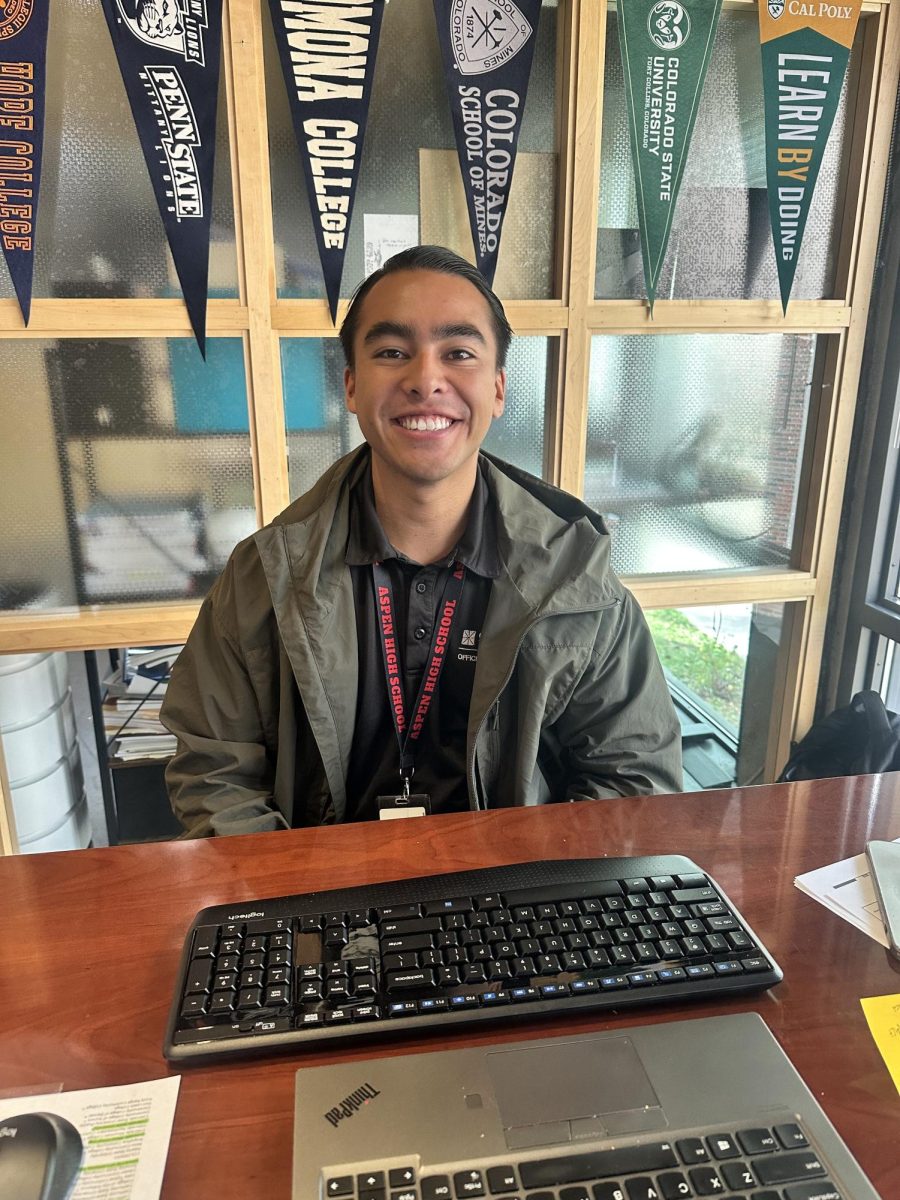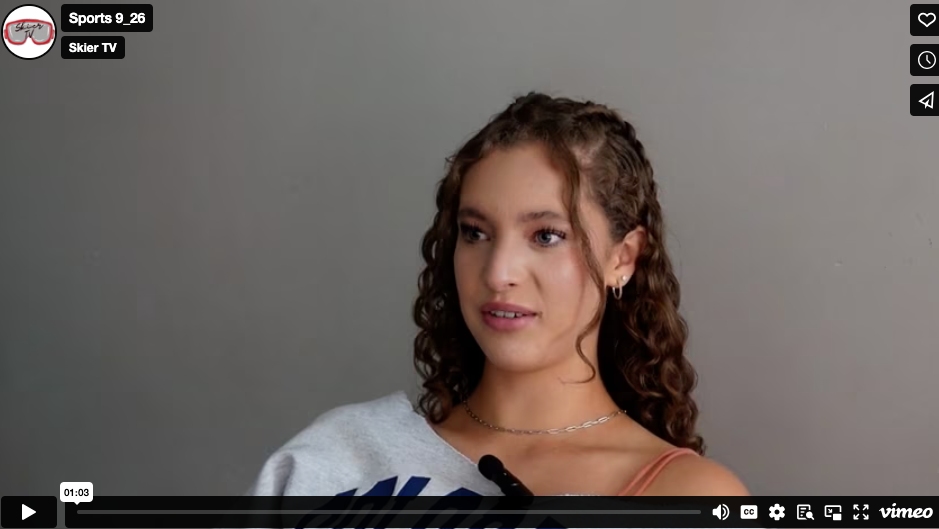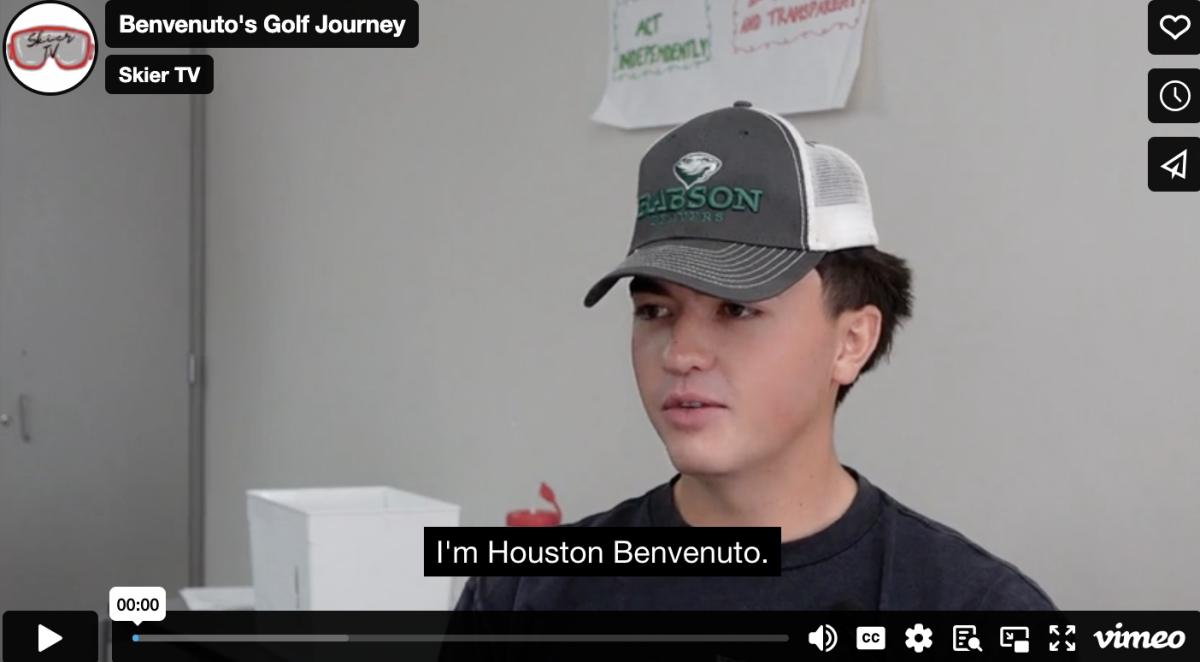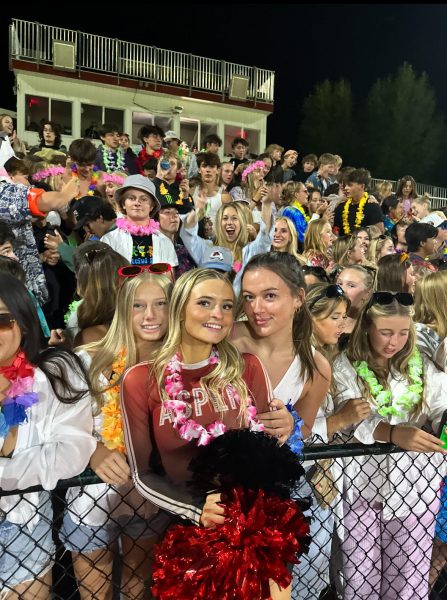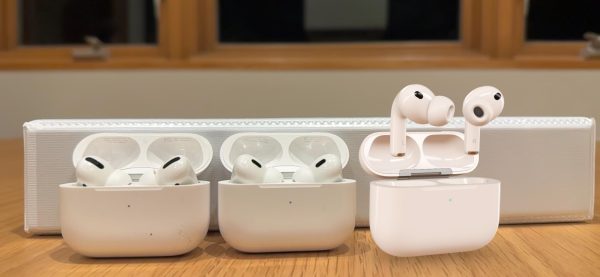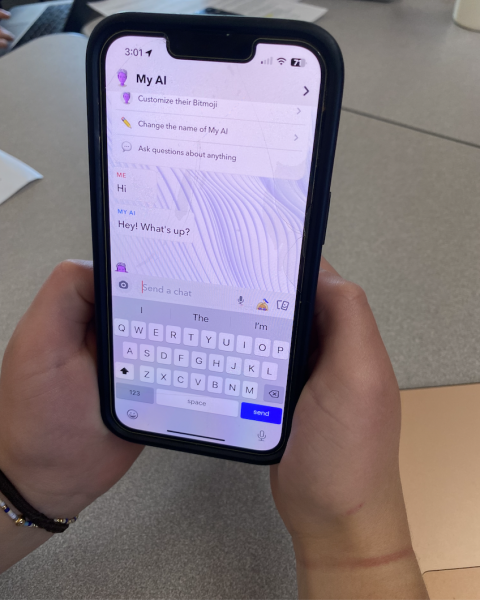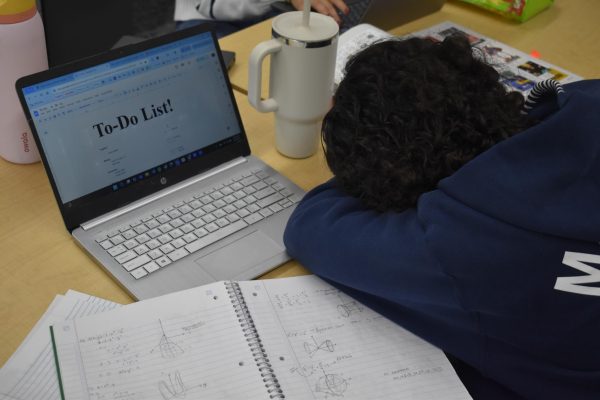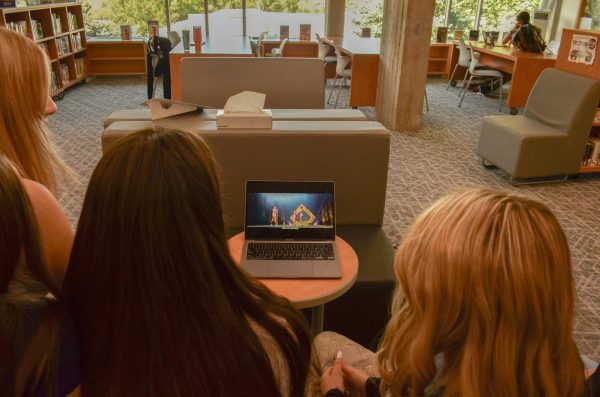poLITical opinions with teachers and students
Students who are working on a U.S. History project while holding polite political conversations.
In today’s political environment, students have a mixed bag of opinions and prejudices that all combine within the school halls. Conversations about politics can quickly evolve into full-blown arguments, and it’s the teacher’s job to regulate and hold respectful conversations within a class. However, there are also controversial opinions on whether or not a teachers personal political view belongs in the classroom.
Brent Maiolo, an Aspen High School Science teacher, would rather have his students lead a political conversation than facilitate one himself. He knows that teachers have a lot of effect on students and that his opinions could possibly sway a kid’s political view.
“I think teachers have quite a bit of influence on their students. I mean, we spend a lot of time together,” Maiolo said. “When you think about it, I almost see you guys more than I see my own kid. So yeah, I think that teachers often don’t think about how much influence they do have.”
Maiolo strives to keep his personal views out of the classroom, but will often help out a kid who is clearly arguing the losing side, just like Joey Dziedzic, an AHS Language teacher, who will also step in and argue the side that students may not be seeing.
“I think it’s very important to see the other side and understand and learn and give it light because that is the beauty of our country, it’s the balance,” Dziedzic said.
Every student can say that they’ve experienced a teacher express their political opinions in class. It’s not that uncommon at AHS, especially since the general population leans toward more liberal and democratic views, but the other side’s representation has always been valued. Tameira Wilson, a History teacher and the IB Director, is a firm believer in staying out of students’ political views within the classroom.
“I know that it’s really difficult for a student to share their belief system if the teacher has made their beliefs known,” Wilson said. “It’s the second obligation, other than sticking to curriculum, to make a safe environment for students and the second we [teachers] interject our own personal beliefs, it could be kind of threatening the safe haven for students to share what they want to share or believe what they want to believe.”
Wilson stays away from imposing her own opinion into any sort of student lead political discussion. With politics becoming more and more relevant to everyone, it’s important to express opinions in a polite, respectful manner. Politics are important but there’s a very definite line between polite conversation versus arguing without facts.
“Even when we discuss politics in my class,” Dziedzic said. “I really think it’s important to have both sides and I often will ask those with opposite views to chime in or I’ll present the other side myself because again, I think the balance is what makes this country great.”

Aja is currently a senior and has been writing with the Skier Scribbler since she was a freshman. She's spent her quarantine growing new plants, reading,...



